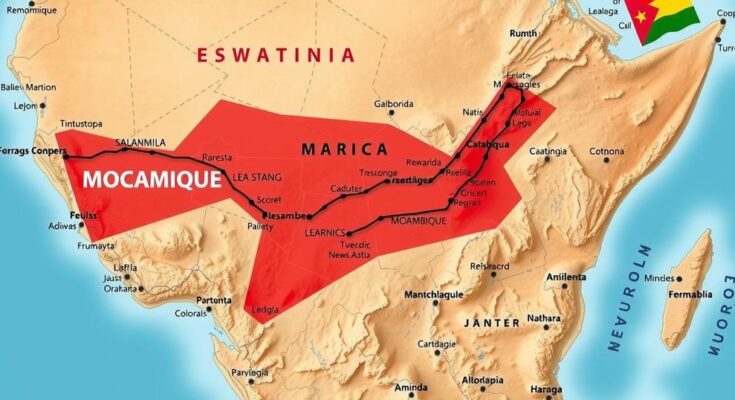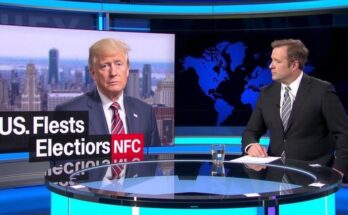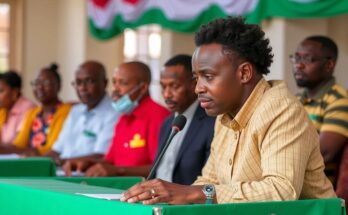Mozambique faces increasing violence following a disputed election, prompting South Africa to redirect trade and travel from Leebombo to Eswatini’s Mananga Border Post. Authorities are challenged in managing the unrest, while political analysts express cautious optimism about regional efforts to facilitate dialogue and stabilize the situation.
Mozambique is currently facing a severe political crisis following the controversial election victory of presidential candidate Daniel Chapo. Widespread protests have erupted, leading to a significant increase in violence, particularly in southern regions close to South Africa’s border. In response to this turmoil, South Africa has rerouted trade and travel activities from the Leebombo Border Post to the Mananga Border Post in Eswatini. Mananga has emerged as a critical transit point, providing passage for individuals seeking stability amidst the unrest in Mozambique.
Michael Masiapato, the Commissioner of South Africa’s Border Management Authority, emphasized that, while authorities are attempting to manage the situation, the challenges remain daunting. He acknowledged the sporadic nature of the protests and the difficulty of policing expansive areas effectively. “Even … when they deploy the military and when they deploy police officers on the corridor [between the capital, Maputo, and the border], it is not able to cover each and every area,” he stated. The ongoing unrest has raised concerns among analysts regarding potential threats to regional stability and economic development, including possibilities of increased criminal activity and weapons proliferation.
Political analysts express a cautious optimism regarding potential interventions. Solomon Mondlane, a political analyst in Mozambique, reported positive developments in international responses. He noted that there have been growing calls for dialogue from various nations, specifically highlighting South Africa’s willingness to facilitate conversations between opposition groups and the ruling party. Mondlane reflected on the historical support of South Africa for the ruling Frelimo party but acknowledged that the current calls for dialogue are encouraging.
Furthermore, Levy Ndou, a political analyst and lecturer at Tshwane University of Technology, commented on the regional dynamics at play, indicating that constructive dialogue represents a positive trajectory towards peace and stability. He underscored the significance of the Southern African Development Community (SADC) potentially having to intervene should the situation escalate further. Zimbabwean President Emmerson Mnangagwa, who serves as the SADC chair, has confirmed that the regional bloc is prepared to assist Mozambique.
The instability in Mozambique is rooted in a disputed national election that has led to heightened political tensions and violence. The subsequent protests have not only threatened the safety of citizens but have also disrupted essential trade and travel routes, particularly with neighboring South Africa. The redirection of traffic and trade to Eswatini signifies the urgent need for alternative solutions in the face of escalating unrest. As global and regional players become involved, their efforts may play a pivotal role in fostering dialogue and preventing further deterioration of the situation.
In conclusion, the current political upheaval in Mozambique poses significant challenges for both national stability and regional security. The diversion of trade and travel to Eswatini’s Mananga Border Post illustrates the immediate impacts of the unrest. Continued efforts for dialogue from South Africa and other regional partners represent a hopeful path towards resolution. However, maintaining peace will require sustained engagement and potential intervention by the SADC if the situation deteriorates further.
Original Source: www.voanews.com




